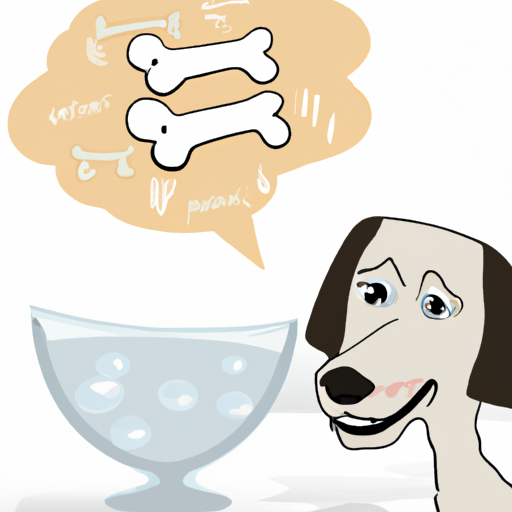Hello there, caregiver! Ever watched your beloved pet lapping up water and wondered, “What does water taste like to dogs?” You’re not alone in this curiosity, and today, we’re going on a fascinating journey to understand just that.
H2: A Dog’s Sense of Taste
Just like us humans, dogs also have taste buds that allow them to experience different flavors. However, their taste buds are not as numerous or as sensitive as ours. While humans have approximately 9,000 taste buds, dogs only have about 1,700.
Dogs are primarily carnivores, so their sense of taste is geared more towards meats and proteins. They can detect sweet, sour, salty, and bitter flavors, but not to the same extent as we can.
H2: How Dogs Perceive Water
Now that we understand a bit about a dog’s sense of taste, let’s delve into the main question: “What does water taste like to dogs?”
Given that dogs have fewer taste buds and a different flavor preference, it’s likely that water tastes different to them than it does to us. However, dogs do not have specific taste buds for water.
- Temperature Sensitivity: Dogs are more sensitive to the temperature of water than its taste. They tend to prefer cooler water, which can seem more refreshing and appealing, especially after exercise or in hot weather.
- Added Flavors: Any added flavors, such as those from a dirty water bowl or a flavored supplement, could impact how a dog perceives the taste of water.
H2: Factors that Affect a Dog’s Perception of Water
Several factors can affect how a dog perceives the taste of water. These include:
- Age: Puppies have more taste buds than adult dogs, which means they might be more sensitive to the taste of water.
- Health: Health issues can affect a dog’s sense of taste and appetite. If your dog suddenly changes its drinking habits, it might be time for a vet visit.
- Diet: The type of food a dog eats can also affect its perception of water. Dogs on a dry food diet may drink more water than those on a wet food diet.
H2: Keeping Your Dog Hydrated
Understanding your dog’s perception of water can help you keep them well-hydrated. Here are some tips to ensure your dog drinks enough water:
- Clean, Fresh Water: Always provide your dog with clean, fresh water. Change the water and clean the bowl daily to prevent the growth of bacteria and algae.
- Cool Water: As mentioned earlier, dogs prefer cooler water. Consider adding a few ice cubes to their water bowl on hot days.
- Multiple Water Stations: If you have a large house or yard, consider setting up multiple water stations. This ensures your dog has access to water wherever they are.
- Hydrating Foods: Incorporate hydrating foods into your dog’s diet. Foods like watermelon, cucumber, and certain types of broth can provide additional hydration.
H2: FAQs
Q1: Do dogs have a preference for tap water or bottled water?
Dogs usually do not show a preference for tap water or bottled water. However, if the tap water in your area is of poor quality or has a strong taste, your dog may prefer bottled water or filtered tap water.
Q2: Why does my dog refuse to drink water?
Several reasons could explain why your dog is refusing to drink water. These include illness, dental problems, or stress. If your dog suddenly stops drinking water, you should consult with a vet immediately.
Q3: Can I flavor my dog’s water to make it more appealing?
Yes, you can add flavors to your dog’s water to make it more appealing. However, be careful to use dog-safe ingredients and avoid anything with artificial sweeteners, especially xylitol, which is toxic to dogs.
Q4: How much water should my dog drink each day?
As a general rule, dogs should drink about an ounce of water per pound of body weight each day. However, this can vary depending on factors like their diet, age, and health.
Conclusion
So, what does water taste like to dogs? The truth is, we may never know exactly how our canine companions perceive the taste of water. But with the understanding of their sense of taste and preference for cooler temperatures, we can make the best guesses and ensure they stay happily hydrated. Plus, isn’t it their happy wagging tails and healthy lives that matter more than solving this mystery?



